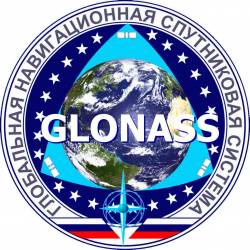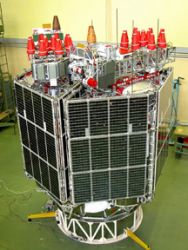Back in December of 2010, Inside GNSS reported that the loss of three GLONASS-M satellites in space resulted from a series of mistakes made by the Russian Energia rocket corporation. Now, more than six years later, Russian prosecutors have wrapped up a criminal case against four employees of Energia allegedly complicit in the crash of the Proton booster with three GLONASS satellites, and they’ve sent the case files to a court of law.
 Proton rocket
Proton rocket
“Deputy Prosecutor General Viktor Grin has endorsed the criminal case’s indictment against Energia employees Stanislav Balakin, Sergei Lomtev, Alexander Martynov and Yuri Bolshigin,” spokesman for the Prosecutor General’s Office Alexander Kurennoi told Russian News Agency TASS.
According to investigators, the Energia employees are allegedly complicit in the crash of a Proton-M carrier rocket with three GLONASS-M satellites on December 5, 2010. The damage to the state amounted to more than $65 million.
“The investigation has established that the crash was due to the application of a wrong formula, which resulted in putting an additional 1,582 kilograms of liquid oxygen into the acceleration unit’s oxidizer tank. This error led to the carrier rocket’s injection into an open orbit and its subsequent fall into the Pacific Ocean,” the spokesman said.
According to the spokesman, Energia department head Balakin, section head Martynov and his deputy Lomtev were responsible for developing operational documentation, but allegedly failed to ensure that their subordinate, engineer Bolshigin, should timely adjust the calculation formula for resetting the fuel control system.
“The document on the need for such adjustment was submitted to the organization’s relevant department but was written off by the engineer as fulfilled. As a result, the calculation formula remained unadjusted,” the spokesman said.
“Subsequently, Balakin, Martynov, Lomtev and Bolshigin, who knew for sure that the formula for the calculation of the fueling level contained incorrect data that could not be used during a rocket launch, agreed (to the) operational documentation without pointing to a mistake in calculations,” the spokesman for the Prosecutor General’s Office said.
The prosecutors have sent the case files to the Moscow Region’s Korolyov City Court to examine the merits of the criminal case.
At that time, the December 5, 2010 launch of the Proton-M carrier rocket was supposed to complete formation of the constellation. Almost one year later, Russia launched a Proton-M rocket carrying three GLONASS-M satellites from the Baikonur space center on November 4, 2011. This was the first launch of a Proton-M rocket with GLONASS satellites from Baikonur since the allegedly failed attempt that led to the dismissal of several top officials in the Russian Federal Space Agency (Roscosmos) and industry.
Over the years there have been other Proton/GLONASS failures, including a premature launch in 2013. That botched launch at the Baikonur space facility in Kazahkstan led to the Proton-M explosion shortly after launch early on July 2, 2013, the second such loss of a trio of GLONASS-M spacecraft at Baikonur in the last three years. According to the Khrunichev Research and Production Space Center, a federal state unitary enterprise that built the Proton launcher, an emergency shutdown occurred 17 seconds into the mission followed by a crash onto cosmodrome property about 2.5 kilometers away.
In February of 2016, in its first GLONASS-M launch in more than a year, Russia lifted a satellite into orbit from the Pletsetsk Cosmodrome, after being postponed from the previous December.
GLONASS-M #51 (GLONASS constellation designation #751) replaced a 10-year-old satellite (GC#714) that ceased operations in October of 2015 in slot 17, orbital plane 3 of the constellation.






